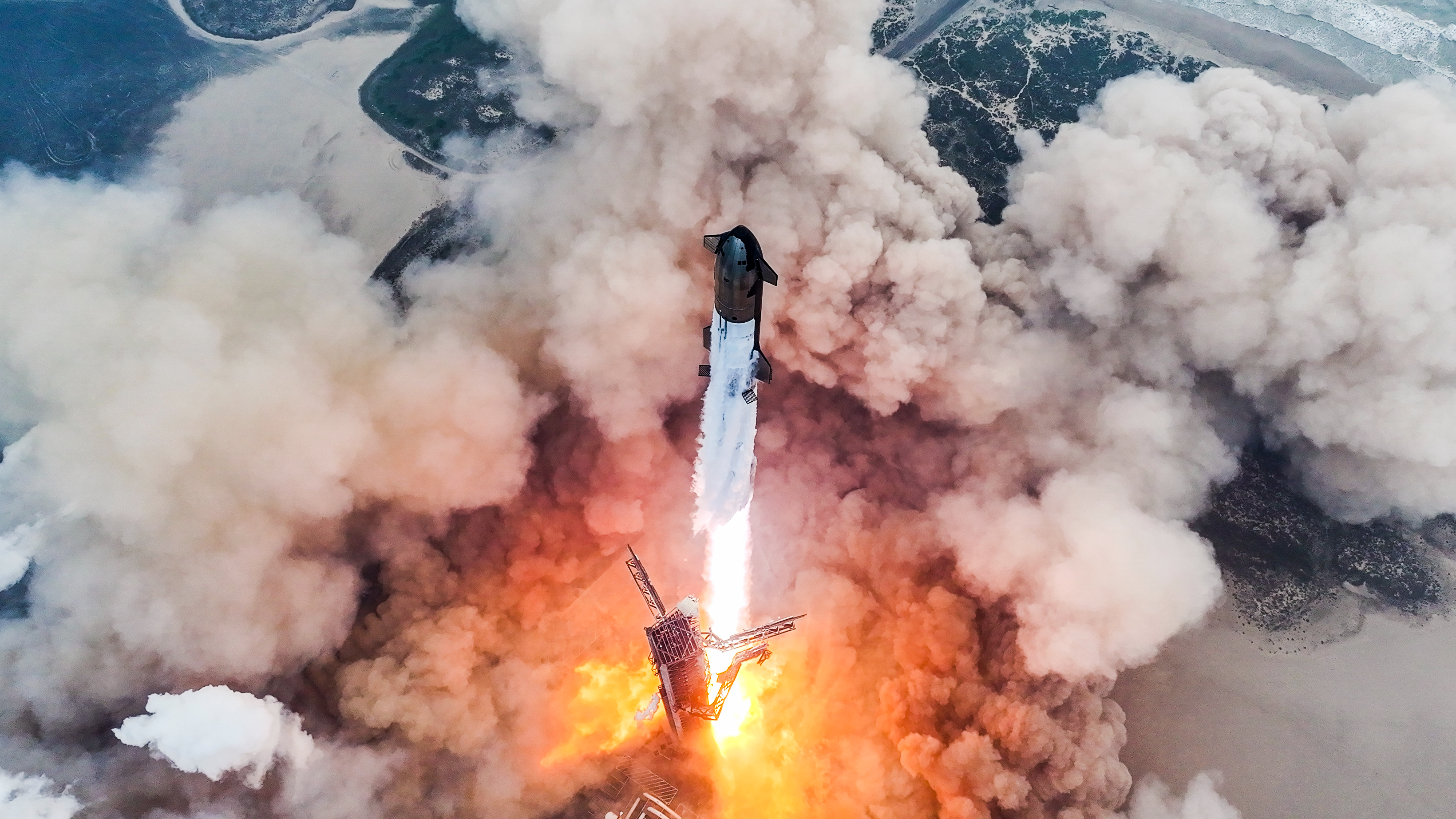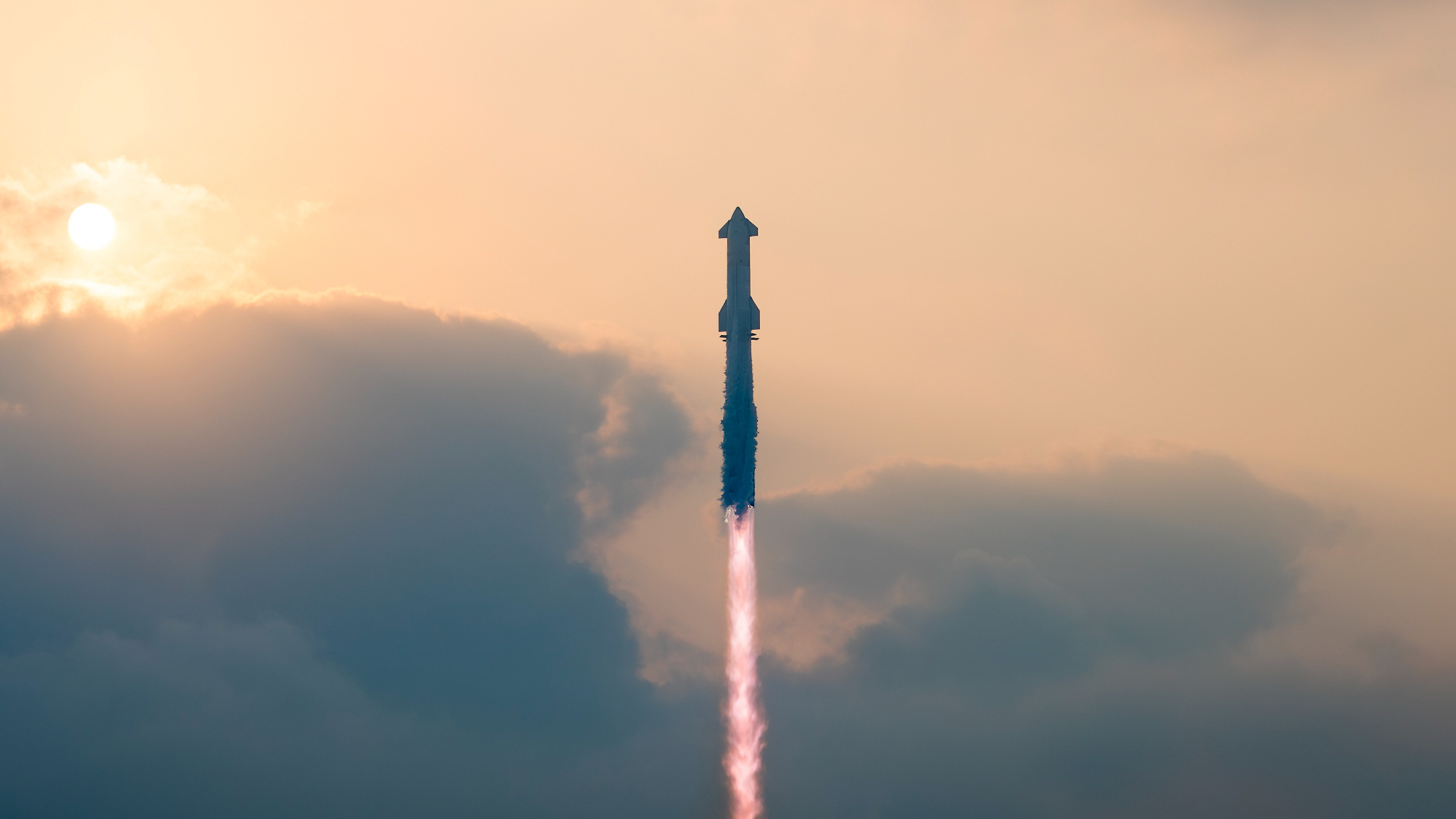
SpaceX's Starship will be grounded for a while longer yet.
Starship — the biggest and most powerful rocket ever built — flew for the fourth time in June, and SpaceX has been gearing up for flight number five ever since. But that test mission is probably still at least 2.5 months away, according to the U.S. Federal Aviation Administration (FAA).
"SpaceX must meet all safety, environmental and other licensing requirements prior to FAA launch authorization," agency officials said in an emailed statement to Space.com on Wednesday (Sept. 11). "A final license determination for Starship Flight 5 is not expected before late November 2024."
The statement explained how the FAA arrived at this timeline.
"SpaceX's current license authorizing the Starship Flight 4 launch also allows for multiple flights of the same vehicle configuration and mission profile. SpaceX chose to modify both for its proposed Starship Flight 5 launch, which triggered a more in-depth review," agency officials wrote.
"In addition, SpaceX submitted new information in mid-August detailing how the environmental impact of Flight 5 will cover a larger area than previously reviewed," they added. "This requires the FAA to consult with other agencies."
Related: SpaceX test-fires Super Heavy Starship booster ahead of 5th flight (video)

SpaceX isn't happy about this development. In a blog post published on Tuesday (Sept. 10), the company wrote that the FAA had previously said the license review would likely be done by mid-September.
The Starship vehicle that will conduct Flight 5 has been ready to fly from a technical standpoint since early August, SpaceX added, claiming that the licensing "delay was not based on a new safety concern, but instead driven by superfluous environmental analysis."
"We find ourselves delayed for unreasonable and exasperating reasons," SpaceX added in Tuesday's post. The lengthy document, titled "Starships Are Meant to Fly," also expressed a broader frustration with the regulatory environment that SpaceX and other launch providers must navigate.
"Unfortunately, we continue to be stuck in a reality where it takes longer to do the government paperwork to license a rocket launch than it does to design and build the actual hardware," SpaceX wrote. "This should never happen and directly threatens America's position as the leader in space."
Starship consists of two elements, both of which are designed to be fully and rapidly reusable: a giant booster called Super Heavy and a 165-foot-tall (50 meters) upper stage known as Starship, or Ship for short.
SpaceX is developing the stainless-steel vehicle — which stands 400 feet (122 m) tall when fully stacked — to help humanity settle the moon and Mars, and to carry out a variety of other ambitious exploration feats as well.
Starship's four test flights occurred in April and November of 2023 and March and June of this year. Starship has performed better on each successive mission. It aced Flight 4, for example; Ship reached orbital velocity as planned, and both it and Super Heavy survived their trip down through Earth's atmosphere, splashing down in the ocean as planned.
Flight 5 will feature a new twist: Super Heavy will attempt to land back on the launch mount at Starbase, SpaceX's Starship launch and manufacturing hub in South Texas. This strategy will be the baseline going forward, if all goes according to plan, allowing more rapid inspection, refurbishment and reflight of Starship in the future.







